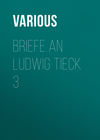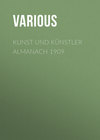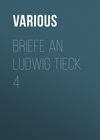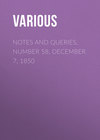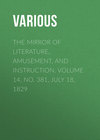Buch lesen: «The Atlantic Monthly, Volume 04, No. 22, August, 1859»
THE DRAMATIC ELEMENT IN THE BIBLE
We say dramatic element in the Bible, not dramatic element of the Bible, since that of which we speak is not essential, but incidental; it is an aspect of the form of the book, not an attribute of its inspiration.
By the use of the term dramatic in this connection, let us, in the outset, be understood to have no reference whatever to the theatre and stage-effect, or to the sundry devices whereby the playhouse is made at once popular and intolerable. Nor shall we anticipate any charge of irreverence; since we claim the opportunity and indulge only the license of the painter, who, in the treatment of Scriptural themes, seeks both to embellish the sacred page and to honor his art,—and of the sculptor, and the poet, likewise, each of whom, ranging divine ground, remarks upon the objects there presented according to the law of his profession. As the picturesque, the statuesque, the poetical in the Bible are legitimate studies, so also the dramatic.
But in the premises, is not the term dramatic interdicted,—since it is that which is not the Bible, but which is foreign to the Bible, and even directly contradistinguished therefrom? The drama is representation,—the Bible is fact; the drama is imitation,—the Bible narrative; the one is an embodiment,—the other a substance; the one transcribes the actual by the personal,—the other is a return to the simplest originality; the one exalts its subjects by poetic freedom,—the other adheres to prosaic plainness.
Yet are there not points in which they meet, or in which, for the purposes of this essay, they may be considered as coming together,—that is, admitting of an artistical juxtaposition?
In the first place, to take Shakspeare for a type of the drama, what, we ask, is the distinguishing merit of this great writer? It is his fidelity to Nature. Is not the Bible also equally true to Nature? "It is the praise of Shakspeare," says Dr. Johnson, "that his plays are the mirror of life." Was there ever a more consummate mirror of life than the Bible affords? "Shakspeare copied the manners of the world then passing before him, and has more allusions than other poets to the traditions and superstitions of the vulgar." The Bible, perhaps, excels all other books in this sort of description. "Shakspeare was an exact surveyor of the inanimate world." The Bible is full of similar sketches. An excellence of Shakspeare is the individuality of his characters. "They are real beings of flesh and blood," the critics tell us; "they speak like men, not like authors." How truly this applies to the persons mentioned in sacred writ! Goethe has compared the characters of Shakspeare to "watches with crystalline cases and plates, which, while they point out with perfect accuracy the course of the hours and minutes, at the same time disclose the whole combination of springs and wheels whereby they are moved." A similar transparency of motive and purpose, of individual traits and spontaneous action, belongs to the Bible. From the hand of Shakspeare, "the lord and the tinker, the hero and the valet, come forth equally distinct and clear." In the Bible the various sorts of men are never confounded, but have the advantage of being exhibited by Nature herself, and are not a contrivance of the imagination. "Shylock," observes a recent critic, "seems so much a man of Nature's making, that we can scarce accord to Shakspeare the merit of creating him." What will you say of Balak, Nabal, Jeroboam? "Macbeth is rather guilty of tempting the Weird Sisters than of being tempted by them, and is surprised and horrified at his own hell-begotten conception." Saul is guilty of tampering with the Witch of Endor, and is alarmed at the Ghost of Samuel, whose words distinctly embody and vibrate the fears of his own heart, and he "falls straightway all along on the earth." "The exquisite refinement of Viola triumphs over her masculine attire." The exquisite refinement of Ruth triumphs in the midst of men.
We see there are points in which dramatic representation and Scriptural delineation mutually touch.
A distinguished divine of Connecticut said he wanted but two books in his library, the Bible and Shakspeare,—the one for religion, the other to be his instructor in human nature. In the same spirit, St. Chrysostom kept a copy of Aristophanes under his pillow, that he might read it at night before he slept and in the morning when he waked. The strong and sprightly eloquence of this father, if we may trust tradition, drew its support from the vigorous and masculine Atticism of the old comedian.
But human nature, in every stage of its development and every variety of its operation, is as distinctly pronounced on the pages of Scripture as in the scenes of the dramatist. Of Shakespeare it is said, "He turned the globe round for his amusement, and surveyed the generations of men, and the individuals as they passed, with their different concerns, passions, follies, vices, virtues, actions, and motives." He has been called the "thousand-minded," the "oceanic soul." The Bible creates the world and peoples it, and gives us a profound and universal insight into all its concerns.
Another peculiarity of Shakspeare is his self-forgetfulness. In reading what is written, you do not think of him, but of his productions. "The perfect absence of himself from his own pages makes it difficult for us to conceive of a human being having written them." This remark applies with obvious force to the Bible. The authors of the several books do not thrust themselves upon your notice, or interfere with your meditations on what they have written; indeed, to such an extent is this self-abeyance maintained, that it is impossible, at this period of time, to determine who are the authors of some of the books. The narrative of events proceeds, for the most part, as if the author had never existed. How naïvely and perspicuously everything is told, without the colouring of prejudice, or an infusion of egotism on the part of the writer!
Coleridge says, Shakspeare gives us no moral highwaymen, no sentimental thieves and rat-catchers, no interesting villains, no amiable adulteresses. The Bible even goes farther than this, and is faithful to the foibles and imperfections of its favorite characters, and describes a rebellious Moses, a perjured David, a treacherous Peter.
"In nothing does Shakspeare so deeply and divinely touch the heart of humanity as in the representation of woman." We have the grandeur of Portia, the sprightliness of Rosalind, the passion of Juliet, the delicacy of Ophelia, the mournful dignity of Hermione, the filial affection of Cordelia. How shall we describe the Pythian greatness of Miriam, the cheerful hospitality of Sarah, the heroism of Rahab, the industry of Dorcas, the devotion of Mary? And we might set off Lady Macbeth with Jezebel, and Cleopatra with Delilah.
But the Bible, it may be said, so far as the subject before us is concerned, is chiefly historical, while Shakspeare is purely dramatic. The one is description,—the other action; the one relates to events,—the other to feelings; the department of the one is the general course of human affairs,—that of the other, the narrower circle of individual experience; the field of the one is that which the eye of philosophy may embrace,—while that of the other is what the human frame may portray.
However this may apply to the average of history, it will be found that the Bible, in its historical parts, is not so strictly historical as to preclude associations of another sort. The Bible is remarkable for a visual and embodied relief, a bold and vivid detail. We know of no book, if we may except the compositions of professed dramatists, that contains so much of personal feeling and incident. In simplicity and directness, in freedom from exaggeration, and in the general unreserve of its expression, it even exceeds the most of these. In it we may discover a succession of little dramas of Nature that will affect us quite as profoundly as those larger ones of Art.
If the structure of the drama be dialogistic, we find the Bible formed on the same model. If the writers of the former disappear under the personages of their fancy, the writers of the latter disappear under the personages of fact. As in the one, so in the other, strangers are introduced to tell their own story, each in his own way.
In the commencement of the Bible, after a brief prologue, the curtain rises, and we, as spectators, look in upon a process of interlocution. The scene is the green, sunny garden of Eden, that to which the memory of humanity reverts as to its dim golden age, and which ever expresses the bright dream of our youth, ere the rigor of misfortune or the dulness of experience has spoilt it. The dramatis personae are three individuals, Adam, Eve, and the Serpent. There are the mysterious tree, with its wonderful fruit,—the beautiful, but inquisitive woman,—the thoughtful, but too compliant man,—and the insinuating reptile. One speaks, the other rejoins, and the third fills up the chasm of interest. The plot thickens, the passions are displayed, and the tragedy hastens to its end. Then is heard the voice of the Lord God walking in the cool (the wind) of the garden, the impersonal presence of Jehovah is, as it were, felt in the passing breeze, and a shadow falls upon the earth,—but such a shadow as their own patient toil may dissipate, and beyond the confines of which their hope, which has now taken the place of enjoyment, is permitted ever to look.
Without delaying on the moral of this passage, what we would remark upon is the clearness and freedom of the dialogue,—a feature which we find pervading the whole of the sacred writings.
In the account of Cain, which immediately succeeds, the narrative is inelaborate, casual, secondary; the dialogue is simple and touching. The agony of the fratricide and his remorse are better expressed by his own lips than could be done by any skill of the historian.
In the deception which Abraham put upon the Egyptians, touching his wife,—which it is no part of our present object to justify or to condemn,—what a stroke of pathos, what a depth of conjugal sentiment, is exhibited! "Thou art a fair woman to look upon, and the Egyptians, when they see thee, will kill me and save thee alive. Say, I pray thee, thou art my sister; that it may be well with me for thy sake, and my soul shall live because of thee."
Viola appears very interesting and very innocent, when, in boy's clothes, she wanders about in pursuit of a lover. Is not Sarah equally interesting and equally innocent, when, under cover of an assumed name, and that a sister's, she would preserve the love of one who has worthily won it?
Will it be said that the dialogue of the Bible lacks the charm of poetry?—that its action and sentiment, its love and its sorrow, are not heightened by those efforts of the fancy which delight us in dramatic authors?—that its simplicity is bald, and its naturalness rough?—that its excessive familiarity repels taste and disturbs culture? If we may trust Wordsworth, simplicity is not inconsistent with the pleasures of the imagination. The style of the Bible is not redundant,—there is little extravagance in it, and it has no trickery of words. Yet this does not prevent its being deep in sentiment, brilliant with intrinsic thought or powerful effect.
In the "Two Gentlemen of Verona," Valentine thus utters himself touching his betrothed:—
"What light is light, if Sylvia be not seen?
What joy is joy, if Sylvia be not by?
Except I see my Sylvia in the night,
There is no music in the nightingale.
Unless I look on Sylvia in the day,
There is no day for me to look upon.
She is my essence; and I cease to be,
If I be not by her fair influence
Fostered, illumined, cherished, kept alive."
Compare with this the language of Abraham. "Thou art fair, my wife. Say, I pray thee, thou art my sister; that it may be well with me for thy sake, and my soul shall live because of thee." The first is an instance of poetic amplification and abandon; we should contend, for the last, that it expresses poetic tenderness and delicacy. In the one case, passion is diffuse,—in the other, concentrated. Which is the more natural, others must judge.
"Euthanasy," "Theron and Aspasio," the "Phaedon" of Plato are dialogues, but they are not dramatic. It may be, that, for a composition to claim this distinction, it must embody great character or deep feeling,—that it must express not only the individuality, but the strength of the passions.
Observing this criticism, we think we may find any quantity of dramatic dialogue in Scripture. The story of Joseph, the march in the wilderness, the history of David, are full of it.
There are not only dramatic dialogue and movement, but dramatic monologue and episode. For illustration, we might refer to Hagar in the wilderness. Her tragic loneliness and shuddering despair alight upon the page of Scripture with the interest that attends the introduction of the veiled Niobe with her children into the Grecian theatre.
There are those who say, that the truth of particular events, so far as we are conscious of it, is a drawback on the pleasure as well as the dignity of the drama,—in other words, that the Bible is too true to afford what is called dramatic delight, while the semblance of truth in Shakspeare is exactly graduated to this particular affection. Between the advocates of this theory, and those who say that Shakspeare is true as truth itself, we can safely leave the point.
The subject has another aspect, which appears in the inquiry, What is the true object of the drama? If, as has been asserted, the object of the drama be the exhibition of the human character,—if, agreeably to Aristotle, tragedy purifies the affections by terror and pity,—or if, according to a recent writer, it interests us through the moral and religious principles of our nature,—or even if, according to Dr. Johnson, it be the province of comedy to bring into view the customs, manners, vices, and the whole character of a people,—it is obvious that the Bible and the drama have some correspondence. If, in the somewhat heated language of Mrs. Jameson, "whatever in religion is holy and sublime, in virtue amiable and grave, whatever hath passion or admiration in the changes of fortune or the refluxes of feeling, whatever is pitiful in the weakness, grand in the strength, or terrible in the perversion of the human intellect," be the domain of tragedy, this correspondence increases upon us.
If, however, it be the object of the drama to divert, then it occupies a wholly different ground from the Bible. If it merely gratifies curiosity or enlivens pastime, if it awakens emotion without directing it to useful ends, if it rallies the infirmities of human nature with no other design than to provoke our derision or increase our conceit, it shoots very, very wide of the object which the sacred writers propose.
It is worthy to be remarked, that the Jews had no drama, or nothing that answers to our idea of that term at the present time; they had no theatres, no writers of tragedy or comedy. Neither are there any traces of the dramatic art among the Egyptians, among whom the Jews sojourned four hundred years, nor among the Arabs or the Persians, who are of kindred stock with this people. On the other hand, by the Hindoos and Chinese, the Greeks and Romans, histrionic representation was cultivated with assiduity.
How shall we explain this national peculiarity? Was it because the religion of the Jews forbade creative imitation? Is it to be found in the letter or the spirit of the second commandment, which interdicts the making of graven images of any pattern in earth or heaven? We should hardly think so, since the object of this prohibition is rather to prevent idolatry than to discourage the gratification of taste. "Thou shalt not bow down to them nor serve them." The Jews did have emblematic observances, costume, and works of art. Yet, on the other hand, the Jews possessed something resembling the drama, and that out of which the dramatic institutions of all nations have sprung. The question, then, why the Jews had no drama proper, and still preserved the semblance and germ thereof, will be partially elucidated by a reference to the early history of dramatic art.
In its inception, the drama, among all nations, was a religious observance. It came in with the chorus and the ode. The chorus, or, as we now say, choir, was a company of persons who on stated occasions sang sacred songs, accompanying their music with significant gesture, and an harmonious pulsation of the feet, or the more deliberate march. The ode or song they sang was of an elevated structure and impassioned tone, and was commonly addressed to the Divinity. Instances of the ode are the lyrics of Pindar and David. The chorus was also divided into parts, to each of which was assigned a separate portion of the song, and which answered one another in alternate measures. A good instance of the chorus and its movement appears after the deliverance of the Jews from the dangers of the Red Sea. "Then sang Moses and the children of Israel this song unto the Lord: 'I will sing unto the Lord, for he hath triumphed gloriously,'" etc. "And Miriam the prophetess took a timbrel in her hand, and all the women went out after her with timbrels and with dances; and Miriam answered them, 'Sing ye to the Lord, for he hath triumphed gloriously.'" At a later period, in Jewish as in Greek history, choral exercises became a profession, and the choir constituted a detached portion of men and women.
"Those who have studied the history of Grecian antiquities," says Archbishop Potter, "and collected the fragments which remain of the most ancient authors, have all concurred in the opinion, that poetry was first employed in celebrating the praises of the gods. The fragments of the Orphic hymns, and those of Linus and Musaeus, show these poets entertained sounder notions of the Supreme Being than many philosophers of a later date. There are lyric fragments yet remaining that bear striking resemblance to Scripture."
So, says Bishop Horne, "The poetry of the Jews is clearly traceable to the service of religion. To celebrate the praises of God, to decorate his worship, and give force to devout sentiments, was the employment of the Hebrew Muse."
The choral song, that is, a sacred ode united with appropriate action, distinguished the Jews and Greeks alike. At a later period of Jewish history, the chorus became perfected, yet without receiving any organic change. Among the Greeks, however, the chorus passed by degrees into the drama. To simple singing and dancing they added a variety of imitative action; from celebrating the praises of the Divinity, they proceeded to represent the deeds of men, and their orchestras were enlarged to theatres. They retained the chorus, but subordinated it to the action. The Jews, on the other hand, did no more than dramatize the chorus. So, Bishop Horsley says, the greater part of the Psalms are a sort of dramatic ode, consisting of dialogues between certain persons sustaining certain characters. In these psalms, the persons are the writer himself and a band of Levites,—or sometimes the Supreme Being, or a personation of the Messiah.
We find, then, the Jews and the Greeks running parallel in respect of the drama, or that out of which the drama sprung, the chorus, for a long series of years. The practice of the two nations in this respect exhibits a striking coincidence, indeed, Lowth conceives that the Song of Solomon bears a strong resemblance to the Greek drama. "The chorus of virgins," he says, "seems in every respect congenial to the tragic chorus of the Greeks. They are constantly present, and prepared to fulfil all the duties of advice and consolation; they converse frequently with the different characters; they take part in the whole business of the poem." They fulfilled, in a word, all the purpose of the Greek chorus on the Greek stage.
On certain occasions, the Greek chorus celebrated divine worship in the vicinity of the great altar of their god. Clad in magnificent vestments, they move to solemn measures about it; they ascend and descend the steps that lead to it; they offer sacrifices upon it; they carry in their hands lighted torches; they pour out lustral water; they burn incense; they divide into antiphonal bands, and sing alternate stanzas of their sacred songs.
So, in their religious festivals, the Jewish chorus surrounded the high altar of their worship, gorgeously dressed, and with an harmonious tread; they mounted and remounted the steps; they offered sacrifices; they bore branches of trees in their hands; they scattered the lustral water; they burnt incense; they pealed the responsive anthem.
But while we follow down the stream of resemblance to a certain point, it divides at last: on the Greek side, it is diverted into the lighter practice of the theatre; on the Jewish side, it seems to deepen itself in the religious feeling of the nation.
Aeschylus, the father of tragedy, seizing upon the chorus, elaborated it into the drama. The religious idea, indeed, seems never to have deserted the gentile drama; for, at a later period, we find the Romans appointing theatrical performances with the special design of averting the anger of the gods. A religious spirit, also, pervades all the writings of the ancient dramatists; they bring the gods to view, and the terrors of the next world, on their stage, are seen crowding upon the sins of this.
On the other hand, David, who may be denominated the Alfred of the Jews, seems to have contented himself with the chorus; he allotted its members, disciplined its ranks, heightened its effect, and supplied new lyrics for its use.
Another exemplification of singular coincidence and diversity between the two nations appears in this, that the goat was common in the religious observances of both; a similar ritual required the sacrifice of this animal: but with the Jews the creature was an emblem of solemnity, while with the Greeks he was significant of joy; the Jews sacrificed him on their fasts,—the Greeks in their feasts. And here we may observe, that tragedy, the most dignified and the primitive form of the drama, deduces its origin from the goat,—being, literally, the song of the goat, that is, the song accompanying the sacrifice of the goat.
Let us now endeavor to answer the question, Why, since the drama was generally introduced among surrounding nations, and Jewish customs and life comprised so many initial dramatic materials, this art was not known among that people?
It was owing to the earnestness and solemnity of their religious faith. We find the cause in the simple, exalted, and comparatively spiritual ideas they had of the Supreme Being; in a word, we shall state the whole ground to be this,—that the Greeks were polytheists, and the Jews monotheists.
Let us bear in mind that the chorus, and the drama that was built upon it, had a religious association, and were employed in religious devotion. We may add, moreover, that the Greeks introduced their gods upon the stage; this the Jews could not do. The Greeks, of course, had a great deal of religious feeling, but they could not cherish that profound reverence for the object of their worship which the Jews entertained towards theirs. The Jews accompanied the Greeks in the use of the chorus, but they could not go with them any farther. They both united in employing music and the dance, and all the pomp of procession and charm of ceremony, in divine worship; but when it came to displaying the object of their adoration in personal form to the popular eye, and making him an actor on the stage, however dignified that stage might be, the Jews could not consent.
This, we think, will explain, in part, why others of the ancient nations, the Arabs and Persians, rich as they were in every species of literature, had no theatre; they were monotheists.
But there is the department of comedy, of a lighter sort, which does not converse with serious subjects, or necessarily include reference to Deity; why do we find no trace of this among the Jews? We may remember, that all festivals, in very ancient time, of every description, the grave and the gay, the penitential and the jubilant, had a religious design, and were suggested by a religious feeling. We think the peculiar cast of the Judaic faith would hardly embody itself in such a mode of expression. Moreover, tragedy was the parent of comedy,—and since the Jews had not the first, we should hardly expect them to produce the last. It is not difficult to perceive how the Greeks could convert their goat to dramatic, or even to comic purposes; but the Jews could not deal so with theirs.
We approach another observation, that there is no comedy in the Bible. There is tragedy there,—not in the sense in which we have just denied that the Jews had tragedy, but in the obvious sense of tragic elements, tragic scenes, tragic feelings. In the same sense, we say, there are no comic elements, or scenes, or feelings. There is that in the Bible to make you weep, but nothing to move you to laughter. Why is this? Are there not smiles as well as tears in life? Have we not a deep, joyous nature, as well as aspiration, reverence, awe? Is there not a free-and-easy side of existence, as well as vexation and sorrow? We assent that these things are so.
But comedy implies ridicule, sharp, corroding ridicule. The comedy of the Greeks ridiculed everything,—persons, characters, opinions, customs, and sometimes philosophy and religion. Comedy became, therefore, a sort of consecrated slander, lyric spite, aesthetical buffoonery. Comedy makes you laugh at somebody's expense; it brings multitudes together to see it inflict death on some reputation; it assails private feeling with all the publicity and powers of the stage.
Now we doubt if the Jewish faith or taste would tolerate this. The Jews were commanded to love their neighbor. We grant, their idea of neighbor was excessively narrow and partial; but still it was their neighbor. They were commanded not to bear false witness against their neighbor, and he was pronounced accursed who should smite his neighbor secretly. It might appear that comedy would violate each of these statutes. But the Jews had their delights, their indulgences, their transports, notwithstanding the imperfection of their benevolence, the meagreness of their truth, and the cumbersomeness of their ceremonials. The Feast of Tabernacles, for instance, was liberal and happy, bright and smiling; it was the enthusiasm of pastime, the psalm of delectableness. They did not laugh at the exposure of another's foibles, but out of their own merry hearts.
Will it be said, the Bible is not true to Nature, if it does not represent the comical side of life, as well as Shakspeare does? We think the comical parts of Shakspeare, his extreme comical parts, are rather an exaggeration of individual qualities than a fair portraiture of the whole species. There is no Falstaff in the Bible, yet the qualities of Falstaff exist in the Bible and in Nature, but in combination, and this combination modifies their aspect and effect.
There is laughter in the Bible, but it is not uttered to make you laugh. There are also events recorded, which, at the time, may have produced effects analogous to comedy. The approach of the Gibeonites to the camp of Israel in their mock-beggarly costume might be mentioned. Shimei's cursing David has always seemed to us to border on the ludicrous.
But to leave these matters and return to the general thread of thought. Dramas have been formed on the Bible. We hardly need name "Paradise Lost," or "Samson Agonistes," or the "Cain" of Byron, the "Hadad" of Hillhouse, or Mrs. More's "David and Goliah." "Pilgrim's Progress" has a Scriptural basis.
Moreover, if we may trust the best critics, certain portions of the sacred volume are conceived in a dramatic spirit, and are propounded to a dramatic interpretation. These are the Book of Job, the Song of Solomon, and, possibly, the Apocalypse of St. John. If we were disposed to contend for this view, we need but mention such authorities as Calmet, Carpzov, Bishops Warburton, Percy, Lowth, Bossuet.
The Book of Job has a prose prologue and epilogue, the intermediate portions being poetic dialogue. The characters are discriminated and well supported. It does not preserve the unities of Aristotle, which, indeed, are found neither in the Bible nor in Nature,—which Shakspeare neglects, and which are to be met with only in the crystalline artificialness of the French stage. "It has no plot, not even of the simplest kind," says Dr. Lowth. It has a plot,—not an external and visible one, but an internal and spiritual one; its incidents are its feelings, its progress is the successive conditions of mind, and it terminates with the triumph of virtue. If it be not a record of actual conversation, it is an embodiment of a most wonderful ideality. The eternity of God, the grandeur of Nature, the profundity of the soul, move in silent panorama before you. The great and agitating problems of human existence are depicted with astonishing energy and precision, and marvellous is the conduct of the piece to us who behold it as a painting away back on the dark canvas of antiquity.
We said the Jews had no drama, no theatre, because they would not introduce the Divinity upon the stage. Yet God appears speaking in the Book of Job, not bodily, but ideally, and herein is all difference. This drama addresses the imagination, not the eye. The Greeks brought their divinities into sight, stood them on the stage,—or clothed a man with an enormous mask, and raised him on a pedestal, giving him also corresponding apparel, to represent their god. The Hebrew stage, if we may share the ordinary indulgence of language in using that term, with an awe and delicacy suitable to the dignity of the subject, permits the Divinity to speak, but does not presume to employ his person; the majesty of Infinitude utters itself, but no robe-maker undertakes to dress it for the occasion. In the present instance, how exalted, how inspiring, is the appearance of God! how free from offensive diminution and costumal familiarity! "Then the Lord answered Job out of the whirlwind, and said." Dim indeed is the representation, but very distinct is the impression. The phenomenon conforms to the purity of feeling, not to the grossness of sense. Devotion is kindled by the sublime impalpableness; no applause is enforced by appropriate acting. The Greeks, would have played the Book of Job,—the Jews were contented to read it.











